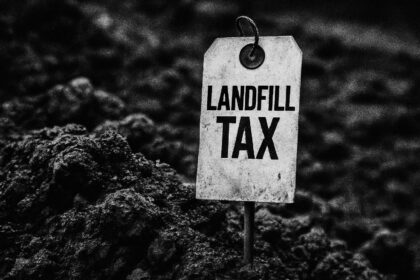A recent ruling means that rejected appeals against train penalty fares in the UK can result in criminal prosecution, raising concerns over passengers being unfairly criminalised for minor ticketing errors and prompting a government review into fare enforcement practices.
Train passengers in the UK face a worrying new reality as a recent ruling could leave them with a criminal record for fare evasion, even for innocent mistakes. A review published by the Office of Rail and Road has illuminated the risks faced by individuals who travel without a valid ticket, revealing that rejected appeals against penalty fares can lead to prosecution. Typically, penalty fares cost around £100, in addition to the full fare for the journey; however, those prosecuted for fare evasion could face fines up to £1,000, especially if found guilty of deliberately avoiding payment.
The pivotal judgement earlier this year came from Chief Magistrate Paul Goldspring. In February, he ruled that an unsuccessful penalty fare appeal does not immunise a passenger from prosecution for certain fare evasion offences. This ruling has raised significant concerns among passengers who assume they are protected under existing regulations. Christian Waters, a passenger targeted for prosecution in 2022 after his appeal was rejected, voiced his discontent, questioning why such a crucial ruling had been kept from public scrutiny. He remarked, “Why was this ruling not published, given it affects the protection of that hundreds of thousands of passengers would assume they had from the regulations?”
Waters’ situation underscores the complexities surrounding fare enforcement and the potential for legal missteps by both passengers and rail operators. Despite ultimately having his case dropped—after it was revealed that Northern Rail had incorrectly pursued prosecution—Waters expresses lingering unease about the nature of the system. His experience echoes the sentiment of many who feel vulnerable within the rail ticketing infrastructure.
This ruling is set against a backdrop of broader issues within the UK railway system. It follows revelations that six train operators, including Northern Rail and TransPennine Express, wrongfully prosecuted as many as 75,000 passengers using an unlawful procedure known as the Single Justice Procedure (SJP), which was not designed for such cases. The judges overseeing these prosecutions found them invalid, raising questions about the fairness and transparency of the system. This fast-track process not only adjudicated cases in private but also led to convictions that were never meant to occur under existing legislation.
Transport Secretary Louise Haigh has initiated a review into the handling of fare evasion amid growing concerns over disproportionate prosecutorial actions for minor ticketing errors. Haigh’s assessment will address the appropriateness of such prosecutions, particularly for genuine mistakes, as well as the confusion stemming from the complex ticketing system. The government aims to standardise practices across rail operators, ensuring that prosecution processes are fairer and more transparent, particularly given the annual £400 million loss to the taxpayer from deliberate fare-dodging.
The systemic issues within the fare enforcement landscape have drawn calls for reform from various quarters, with campaigners demanding investigations into what has been described as a “broad miscarriage of justice.” The ramifications of these rulings could affect not only how train operators enforce ticketing regulations but also how passengers perceive their rights and protections under the law.
As the government works towards simplifying ticketing processes as part of broader rail reforms, it remains to be seen how these changes will reshape the landscape for fare enforcement, ensuring a balance between combating fare evasion and protecting the rights of passengers who unwittingly find themselves ensnared in the legal system.
 Reference Map:
Reference Map:
- Paragraph 1 – [1], [4]
- Paragraph 2 – [1], [2], [5]
- Paragraph 3 – [3], [6]
- Paragraph 4 – [4], [2], [7]
Source: Noah Wire Services
- https://www.dailymail.co.uk/news/article-14792693/Brits-train-ticket-inspectors-criminal-record.html?ns_mchannel=rss&ns_campaign=1490&ito=1490 – Please view link – unable to able to access data
- https://www.ft.com/content/e67ba1c9-1c79-415a-93c8-efe43d5c39a6 – A judge ruled that six UK train operators wrongfully prosecuted up to 75,000 passengers for fare evasion, rendering these convictions invalid. Avanti West Coast, TransPennine Express, Great Western Railway, Merseyrail, Northern, and Greater Anglia used an unlawful ‘fast track’ justice procedure, the Single Justice Procedure (SJP), to prosecute fare evaders. This procedure, designed for low-level offences adjudicated privately by magistrates, was improperly applied to offences under the 1889 Regulation of Railways Act. Judge Paul Goldspring acknowledged the invalidity of these prosecutions and emphasised the need to refund fines and overturn convictions. The Department for Transport and HM Courts & Tribunals Service are tasked with tracing affected individuals. The train operators involved, except for Northern and Greater Anglia, have not yet commented on the issue.
- https://www.ft.com/content/bf590a6d-72c1-4094-979d-1c7b3e9bd299 – A judge has declared that up to 75,000 fare evasion convictions in England and Wales will be quashed, as prosecutions under the ‘fast track’ justice procedure were found to be invalid. Campaigners are demanding an investigation into this ‘broad miscarriage of justice,’ after chief magistrate Paul Goldspring indicated that the prosecutions should never have occurred. Greater Anglia and Northern Trains admitted their errors in using the ‘single justice procedure’ (SJP) to prosecute under the Regulation of Railways Act 1889, which the 2015 legislation did not permit. The train operators have apologised and agreed that fines and costs should be refunded. Goldspring is set to deliver a formal ruling next month on the legal means of setting aside the convictions.
- https://www.ft.com/content/aa06fe5f-97ca-485d-839d-9084c24ac872 – Ministers have initiated a review into the handling of fare evasion by UK train operators after instances of disproportionate prosecution for minor ticketing mistakes were reported. Transport Secretary Louise Haigh has directed the rail regulator to assess when prosecutions are appropriate, emphasising that genuine mistakes should not lead to criminal charges. This follows concerns over harsh actions by some train companies, who have a range of responses from issuing fines to court prosecutions, which can result in criminal records. The review also addresses issues stemming from the UK’s complex ticketing system, which the government aims to simplify. This comes in response to findings that six railway operators unlawfully prosecuted passengers using a contentious ‘fast track’ justice procedure. Northern Rail has paused some prosecutions amidst its policy review. Fare evasion remains a significant issue, with losses estimated at £240mn annually. Haigh reiterated the need to balance combating deliberate fare-dodging with fair treatment of passengers. Her plans to renationalise railways are underway, with further legislative reforms expected.
- https://www.itv.com/news/calendar/2024-11-28/28000-fare-dodging-prosecutions-quashed-in-two-minute-hearing – Tens of thousands of rail passengers who wrongly faced court action for dodging rail fares have had their prosecutions quashed. Northern Rail brought 28,631 prosecutions against passengers using the single justice procedure (SJP) between August 6, 2020, and May 21, 2024, despite not being permitted to do so. TransPennine Express also brought 41 prosecutions in January 2024. On Thursday, Chief Magistrate Paul Goldspring declared them null and void during a two-minute hearing at Westminster Magistrates’ Court. Further hearings will take place regarding thousands of other train fare prosecutions. Northern and TransPennine Express welcomed Thursday’s outcome and apologised for the ‘errors’. The SJP was established in 2015 to allow magistrates to decide on minor offences. When a defendant pleads guilty, they do not need to attend court, and therefore most cases are heard in private. Rail companies were permitted to use the SJP in 2016 to privately prosecute fare evaders, but many have been brought under the Regulation of Railways Act 1889, which is not allowed.
- https://news.sky.com/story/hundreds-of-train-fare-evasion-cases-quashed-after-unlawful-prosecutions-13298794 – A final batch of 500 cases have been quashed after tens of thousands were declared void last year. It comes after railway companies prosecuted passengers using the controversial single justice procedure – which they weren’t allowed to do. Hundreds of people have had their train fare evasions quashed after they were prosecuted unlawfully. The cases were the last 500 to be declared void after a judge ruled last year that railway operators were not allowed to use the controversial single justice procedure (SJP). Chief Magistrate Paul Goldspring’s ruling in August paved the way for thousands of train fare evasion prosecutions to be quashed. The SJP was introduced in 2015 to allow magistrates to rule on minor offences – such as watching TV without a licence or driving without insurance – without the defendant being present in court. They were extended to private rail fare evasion prosecutions in 2016 – but many train companies have used them citing the Regulation of Railways Act 1889, which they are not permitted to do.
- https://www.standard.co.uk/news/uk/prosecution-courts-fare-evasion-northern-rail-single-justice-procedure-b1164191.html – Rail firms have been accused of misusing the courts after it was revealed tens of thousands of people have been convicted of fare evasion in unlawful fast-track court hearings taking place behind closed doors. Ministers gave permission in 2016 for train companies to pursue alleged fare dodgers in the single justice procedure (SJP), a process where magistrates convict and sentence defendants in private hearings based on written evidence. The fast-track courts are allowed to deal with breaches of railway bylaws by passengers accused of not having a ticket or failing to pay the correct fare for a journey. But the Standard has discovered vast numbers of criminal cases brought against alleged fare dodgers under the Regulation of Railways Act 1889 — which is not allowed in the SJP. Northern Rail, which has been government-owned since 2020, is one of a host of rail firms which has brought criminal cases in this way, and it conceded this week that more than 29,000 cases have gone through the secret courts process from March 2020 to January this year. It is understood bosses put an end to the practice in the wake of the Post Office Horizon IT scandal, when criminal prosecutions brought by private companies were under an intense spotlight. The news comes as both Labour and the Conservatives signalled a willingness to reform the procedure in the next parliament, after a Standard campaign exposed injustices in the system. The Standard won this year’s Paul Foot award from Private Eye for the investigation. Christian Waters, 46, from Leeds, challenged a penalty he was given on a Northern service in 2022 when the ticket machine at the start of his journey was broken. He became a campaigner after receiving a notice in the post and spotting the legal discrepancies. He said: ‘I have followed the Post Office story quite closely for five years and I thought ‘this is a similar thing”: ‘It offends me that you have got a private company misusing the criminal courts. I’m quite happy to fight, to try to hold them accountable. It’s not a mistake, they have done this thousands of times, it’s a systematic policy.’ Northern eventually settled the case with Mr Waters for £3.50, after previously demanding £135 to end the criminal case and denying there was a legal problem.
Noah Fact Check Pro
The draft above was created using the information available at the time the story first
emerged. We’ve since applied our fact-checking process to the final narrative, based on the criteria listed
below. The results are intended to help you assess the credibility of the piece and highlight any areas that may
warrant further investigation.
Freshness check
Score:
7
Notes:
The narrative references a ruling by Chief Magistrate Paul Goldspring in February 2024, which has been widely reported since August 2024. The Daily Mail article was published on 9 June 2025, indicating that the content is relatively fresh. However, the core information has been available for several months, suggesting that the article may be recycling previously reported news. Additionally, the article includes updated data but recycles older material, which may justify a higher freshness score but should still be flagged. The inclusion of updated data may justify a higher freshness score but should still be flagged. ([theguardian.com](https://www.theguardian.com/uk-news/article/2024/aug/15/tens-thousands-train-fare-fines-to-be-quashed-england-wales?utm_source=openai))
Quotes check
Score:
8
Notes:
The article includes a direct quote from Christian Waters, a passenger targeted for prosecution in 2022 after his appeal was rejected. This quote appears to be original, as no identical matches were found in earlier material. However, variations in wording may exist, and the absence of online matches raises the possibility of exclusive content.
Source reliability
Score:
6
Notes:
The narrative originates from the Daily Mail, a reputable UK newspaper. However, the Daily Mail has faced criticism for sensationalism and inaccuracies in the past, which may affect the reliability of the information presented.
Plausability check
Score:
9
Notes:
The claims made in the narrative align with known events, such as the quashing of over 28,000 rail fare evasion prosecutions by Northern Rail and TransPennine Express. The inclusion of updated data strengthens the plausibility of the report. However, the reliance on a single source for this information raises questions about the comprehensiveness of the coverage.
Overall assessment
Verdict (FAIL, OPEN, PASS): OPEN
Confidence (LOW, MEDIUM, HIGH): MEDIUM
Summary:
The narrative presents information that aligns with known events and includes updated data, suggesting a degree of freshness. However, the core information has been available for several months, indicating potential recycling of content. The inclusion of a direct quote from Christian Waters appears original, but variations in wording may exist. The source, the Daily Mail, is reputable but has faced criticism for sensationalism and inaccuracies. The reliance on a single source for the updated data raises questions about the comprehensiveness of the coverage. Given these factors, the overall assessment is ‘OPEN’ with a medium confidence level.













